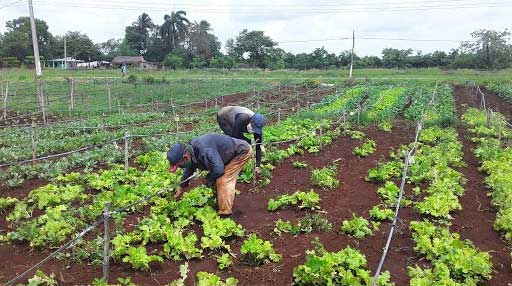Strategies to strengthen local food systems in Cuba
Havana, July 8- The members of the National Commission on Food Sovereignty and Food and Nutritional Security analyzed strategies to strengthen local food systems in all municipalities of the country.
The meeting, held at the Palace of the Revolution, was chaired by Salvador Valdés Mesa, vice president of the Republic, and led by Prime Minister Manuel Marrero Cruz, according to the Cuban Television News in its stellar broadcast on Wednesday.
The management of local food systems is one of the challenges involved in the implementation of the Law on Food Sovereignty and Food and Nutritional Security, as evidenced at the meeting.
Marrero Cruz, also coordinator of the national commission, said that in view of the financial constraints facing the country, the impacts of climate change and the global food crisis, the legislation focuses its contents on the organization of the actors, processes and resources linked to the production, processing and marketing of agricultural products in municipalities.
Vice Prime Minister Jorge Luis Tapia Fonseca emphasized the reserves and potential of more than seven thousand communities in the country to produce food sustainably.
In this sense, he distinguished in the role of the municipal commissions to reach the popular councils, districts, self-consumptions, courtyards and plots.
The program of urban, suburban and family agriculture has a great weight in the production of food on agroecological bases from the reserves and potentialities of each territory.
Regarding the issue, Elizabeth Peña Turruellas, national director of that movement, linked actions to increase productive levels, among them, the transformation of base business units, urban farms and the use of agricultural areas available in labor centers, as well as the marketing of productive surpluses directly by families.
The Prime Minister stressed that the last period of work has been marked by training, constant learning and the change of municipal and provincial structures.
At the same time, she stressed that communication is a transversal process to the management of food sovereignty. (Taken from Radio Cadena Agramonte)


